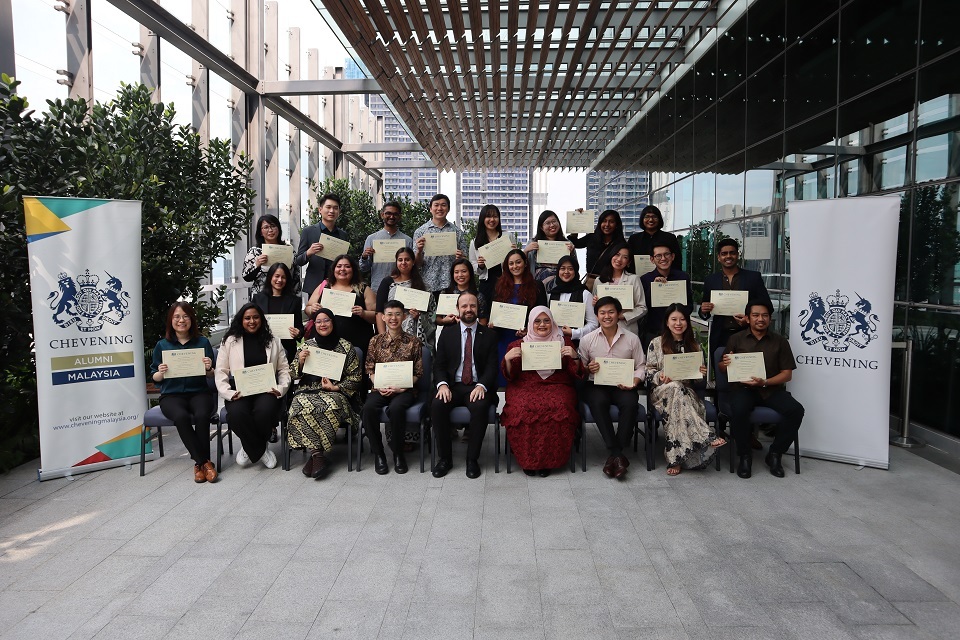Kelly Murphy is the Climate Change Officer at Welwyn Hatfield Borough Council, a local authority in Hertfordshire that oversees a mix of urban, suburban, and rural areas.
As Kelly explained, Welwyn Hatfield works collaboratively with nine other authorities within the Hertfordshire Climate Change and Sustainability Partnership (along with County Council and Hertfordshire Futures), where they share information and work collectively to broaden the impact of their Net Zero and sustainability projects. We were keen to hear what part the Council Climate Action Scorecards have played within Welwyn Hatfield.
Kelly explained that, for Welwyn Hatfield Borough Council, one big advantage has been the ability to learn from other authorities:
“We’ve used the Scorecards to understand what areas we need to improve in, and to research what ‘good’ looks like”, she says. “The transparent scoring meant we could identify local authorities across the UK that had performed highly in specific sections, then research what aspects they were doing well on, and how they were doing it.”
And how does that kind of research translate into action? Kelly gave a perfect example:
“One section where we could see that we needed to develop our approach was Collaboration and Engagement. Having a climate agenda and taking action is obviously of great importance, but we needed to ensure that they were also being communicated throughout the borough so that residents understood exactly what the council is doing.
“After researching other local authorities that performed well in this section, and incorporating feedback from a resident survey we conducted, we looked at what was within our budget and officer capacity.
“We decided the best way to engage with residents, community groups and businesses was the creation of our Welwyn Hatfield Climate Hub, a dedicated space on the One Welwyn Hatfield community website. It’s a single source for everything climate-related in the borough, with progress updates, news, links to relevant reports and policies, educational resources, funding information, notification of relevant events and competitions, a list of community eco groups and so on.”
That sounds like a real step up, and a great response to learning that improvements needed to be made in this area.
Compiling the Scorecards is a significant effort, managed by Climate Emergency UK with trained-up volunteers. But equally, they wouldn’t be possible without buy-in from the councils themselves, who are invited to respond to their marks before the Scorecards go live. We asked Kelly what the council’s experience had been of this process.
“It’s actually been very useful,” she says. “For instance, during the right of reply period, I noted that we had not scored on a number of questions. I knew that marking depends on having publicly available evidence, and when I looked for it I discovered that, in some cases, the information was quite tricky to find.
“A new sustainable procurement appendix, for example, had been recently added to our procurement and commercial strategy 2021-2025, but unless you knew it was there, you might not scroll all the way down through that document.
“As a result, I updated the Climate Hub, with a new section specifically on sustainable procurement, including a link to take readers directly to the strategy and ultimately improving accessibility to this information.”
Another benefit was also provided regarding funding, Kelly explains “Climate awareness/literacy training has featured in the Scorecards for the last few years. The fact we had not scored in this area, along with a number of other persuasive reasons, was presented in a report to senior leaders and councillors to request draw down of money from the climate reserves to fund this training.
“Having agreed that providing climate awareness training was a crucial step in supporting, enabling and empowering individuals to take climate action, we collaborated with a private company to offer staff, councillors and our residents bespoke climate awareness training. We are excited to launch this training at the end of the month and look forward to hearing about the positive impacts the training has had both internally within the organisation and externally around the borough.”
It’s wonderful to hear of the tangible results the Scorecards have helped to bring about, thanks to Welwyn Hatfield Borough Council’s positive and proactive attitude.
Kelly says as we conclude our conversation, “You can’t compare councils like for like — they have different demographics, governance structures, administration, budgets, officer capacity, and so on — so it might have been easy to dismiss the Scorecards. But it’s not a competition, and the Scorecards don’t try to make it one. We’ve embraced the process because climate change has no borders.”
“Ultimately, a platform that flags areas for improvement and signposts to best practice should only been seen positively. It enables us all to move in the same direction towards the same goal.”
We heartily agree! Thanks very much to Kelly for sharing her experiences.
—
Image by Jim Osley CC by-sa/2.0.


